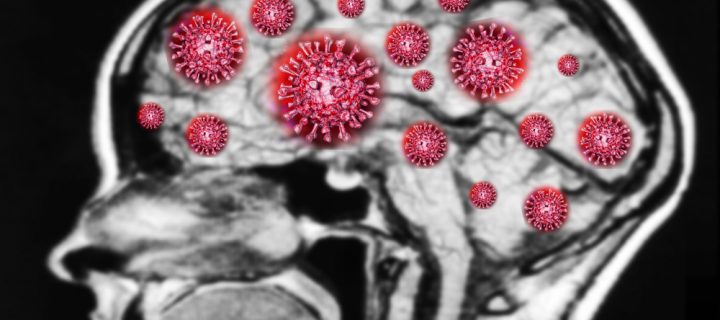Inflammation, blood clots, and a lack of oxygen can do lasting, deadly, damage.
Yes, the novel coronavirus can hurt your brain. While you may more often hear reports of lung, heart, or muscle damage in connection with the virus, that’s not all it can inflict. The coronavirus can also wreak havoc in your head.
What does it do? Strangely enough, the virus causing COVID-19 does not actually cause an infection in your brain. Here’s what can happen.
Inflammation and a Lack of Oxygen
According to neuroscientists from Columbia University’s Irving Medical Center, the coronavirus, or SARS-CoV-2, can cause significant neurological damage. Researchers think the brain is impacted by inflammation caused by the virus occurring in other parts of your body. This in turn affects your brain. Scientists think the brain can also be affected when its blood vessels become inflamed. Your brain does not, somewhat surprisingly however, become infected with COVID-19.
“Though there are some papers that claim to have found virus in neurons or glia, (non-neural cells in your brain), we think that those result from contamination,” said James E. Goldman, MD, PhD. Goldman was one of the study’s lead authors. “Any virus in the brain is contained within the brain’s blood vessels.”
Related: Are the Variants Deadlier?
For their study, researchers examined the brains of 41 COVID-19 patients who died from the virus while being hospitalized for it. All of these patients had been intubated and had lung damage caused by the virus. Patients ranged in age from 38 years old all the way up to 97 years of age. Because some experts believe the novel coronavirus can potentially travel from your nose up to your brain, tests were done on numerous brain regions, including the olfactory bulb. (This is the area that helps you smell). Thankfully, researchers say they found no evidence the virus can travel from your nose to your brain. But there is bad news.
Strokes and Clots
“The first thing we noticed was a lot of areas with damage from a lack of oxygen,” Goldman says. “They (the patients) all had severe lung disease (caused by COVID-19), so it’s not surprising that there’s hypoxic damage in the brain.”
Researchers said they detected both large and small areas of damage in the brain. Larger areas seemed damaged by strokes caused by a lack of oxygen. The small areas of damage, they said, were likely the result of blood clots. These clots had temporarily stopped oxygen from getting to those parts of the brain.
“There’s been considerable debate about whether this virus infects the brain, but we were unable to find any signs of virus inside brain cells of more than 40 COVID-19 patients,” said Goldman.
“At the same time, we observed many pathological changes in these brains, which could explain why severely ill patients experience confusion and delirium and other serious neurological effects — and why those with mild cases may experience ‘brain fog’ for weeks and months.”
Affecting Younger Age Groups
These findings support other evidence that COVID-19 is causing strokes in otherwise healthy young people. For example, doctors have said they are seeing massive strokes in patients with the coronavirus in their 30s, 40s, and 50s. Sadly, these are the type of strokes normally witnessed in people who are in their 70s and 80s.
Are you still looking for a coronavirus vaccine but finding it hard to land one? Try using VaccineHunter.org in the US, or Vaccinehunters.ca in Canada. These services have teams of volunteers to help you find a shot in your area and help end the pandemic.
photo credits: Numstocker/Shutterstock.com












